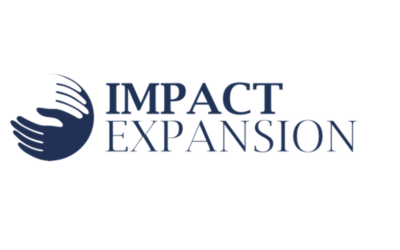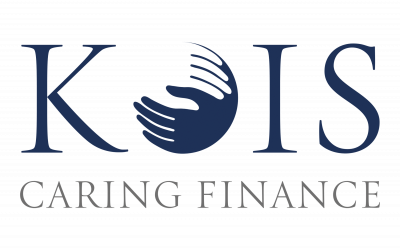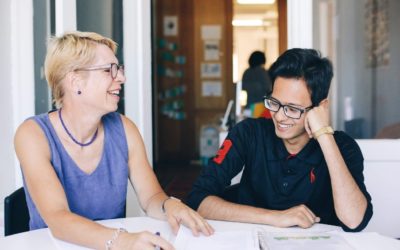Scaling up social enterprising of ophthalmic units in the Democratic Republic of Congo
May 17, 2018Project details
Sight issues creates problems from social exclusion, to difficulty to integrate the job market and to access education. These can be exacerbated in developing countries. Yet, 75% of the visually impaired have a preventable or treatable condition. To help in solving this issue, Light for the World sets up ophthalmologic clinics in developing countries. In this context, LFTW engaged KOIS to support the scale-up of their activities in the Democratic Republic of Congo.An issue with hope
Poor sight is not only a health issue. It also excludes people from key life-changing opportunities such as education and productive employment. Around the world, 217 million people suffer from moderate to severe visual impairment. Additionnally, 36 million people are blind. However, more than 75% of these cases are preventable or even curable. All they required is surgery or the right pair of spectacles.
In 2018, the DRC had some of the worst rates of visual impairment in Sub-Saharan Africa. Their visual impairment prevalence was estimated at 4,7%. This mainly resulted from a blatant lack of quality eye-care. There was a severe shortage of trained medical staff, with only one ophthalmologist per 1 million inhabitants. Adding to this issue, 75% of ophthalmologists are located in the capital, Kinshasa. As a result, the DRC ranked 100th of 102 countries worldwide as to its cataract surgical rate.
Yet, people who have their sight restored can get back into society. They can (re)gain their autonomy and contribute to the wealth of their communities. Furthermore, research estimates a potential benefit of eliminating avoidable blindness in the developing world of at least $517.1Bn. This far outweighs the additional required investment of $218.2Bn (i.e. $2.20 of additional investment on top of what the current spending on eye care, per capita per year for 10 years).
%
percentage of visually impaired people living in low and middle income countries
%
of visually-impaired children do not go to school in developing countries
Light for the world: setting up eye clinics in Tanzania, Rwanda and the DRC
Light for the World (LFTW) Belgium has over 20 years’ experience in eye care in Tanzania, Rwanda and the DRC. The organization has a strong track record curing preventable blindness and visual impairments. In 2018, in the context of the DRC National Plan for Eye-Care and Vision, the Ministry of Health mandated Light for the World Belgium with a specific mission : providing eye-care services in the 9 Southern provinces of the country.
From 2018 to 2020, KOIS is supported LFTW Belgium in the scale-up of its eye care activities in the country. KOIS made recommendations on the integration of strengthening elements. The aim was to improve the operational efficiency and the financial self-sustainability of existing and future centres.
Furthermore, KOIS also explored potential blended finance models to finance LFRW Belgium’s scale-up plan in South DRC.
The optimization of Light for the World Belgium’s operational footprint in the DRC will enable the NGO to improve the self-sustainability and overall impact of its existing and future centres. In the current efficiency-driven context, this is a necessary step to help LFTW raise significant donor funding and/or return-seeking capital to finance its scale-up strategy in South DRC.
Expected Impact
ophtalmological centres built in each province of the South DRC
Increase of current surgical capacities
Increase of current consultation capacities
%
of cataract surgeries with a positive outcome
Impact Story: Two young Lubumbashi brothers
Célestin and Jacques, two young brothers living in Lubumbashi, were completely blind. Because of their visual impairment, the children couldn’t go to school and their mother, Lorriane, was prevented from working.
One day, at a mobile clinic near their home, a nurse diagnosed the two boys with cataracts and explained that a simple operation could cure them of the disease and restore their eyesight. Lorriane then learned of the existence of an ophthalmology clinic in Lubumbashi supported by Light for the World. She immediately took her two children there. On the spot, the local ophthalmologist performed an operation on Célestin and Jacques.
The children had to go back regularly to the clinic for visual therapy sessions. These allowed them to stimulate and develop their vision. They trained each eye separately and used glasses to see at a distance.
Thanks to these sessions, Jacques was able to regain good eyesight. But Célestin’s vision declined again. In fact, sometimes the capsule that supports the artificial lens placed during the operation becomes opaque, a phenomenon called secondary cataract.
Fortunately, the boy was then treated within seconds with a Yag laser. The procedure allows the ophthalmologist to clean the opacification by making a small opening in the capsule. This time, mission accomplished: Célestin immediately regained good visual acuity!
I am very happy with the hospital; they are good doctors and therapists. As soon as the problems in the eyes of my sons are completely solved, I will take care of registering them at school. They have never been to school before, but that will change!
Discover our other projects
Impact Expansion: investing to tackle social exclusion, healthcare challenges and climate change in Europe
Impact Expansion was founded in 2022 through a covenant of partners from KOIS and Milestone. On the strength of their expertise in impact investing with a strong buy-and-build track record, the fund invests in companies during their growth stage in 3 focus sectors: Healthcare, Education & Employment, and Environment.
Club deals: since its inception, KOIS has initiated and managed a number of impactful club deals
KOIS and Quadria capital co-founded HealthQuad in 2016. Since then,
HealthQuad has become India’s leading Healthcare Focused Venture Capital Fund. The fund typically invests in early stage companies with a high disruption potential in the healthcare industry. HealthQuad aims to contribute to improving affordability, accessibility and quality of healthcare services in India while generating attractive returns for investors.
Multi-country Social Outcomes Contracting to tackle unemployment in Europe
European Union Member States have been confronted with the challenge of unemployment for several decades with relatively similar characteristics. Seeking innovative approaches to tackle this common issue, KOIS has supported the European Investment Advisory Hub (EIAH), in testing the preliminary feasibility of a Pan-European Social Outcomes Contracting (SOC) scheme. In this study, we explore the potential benefits and hurdles of a multi country Social Outcomes Contracting in three pilot countries, France, Belgium and the Netherlands.




